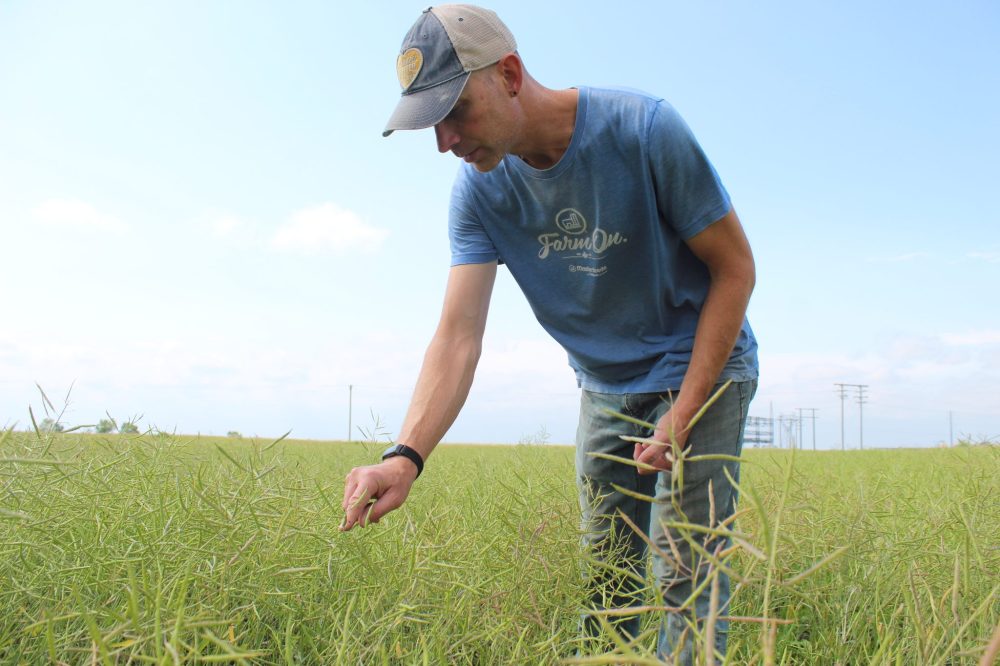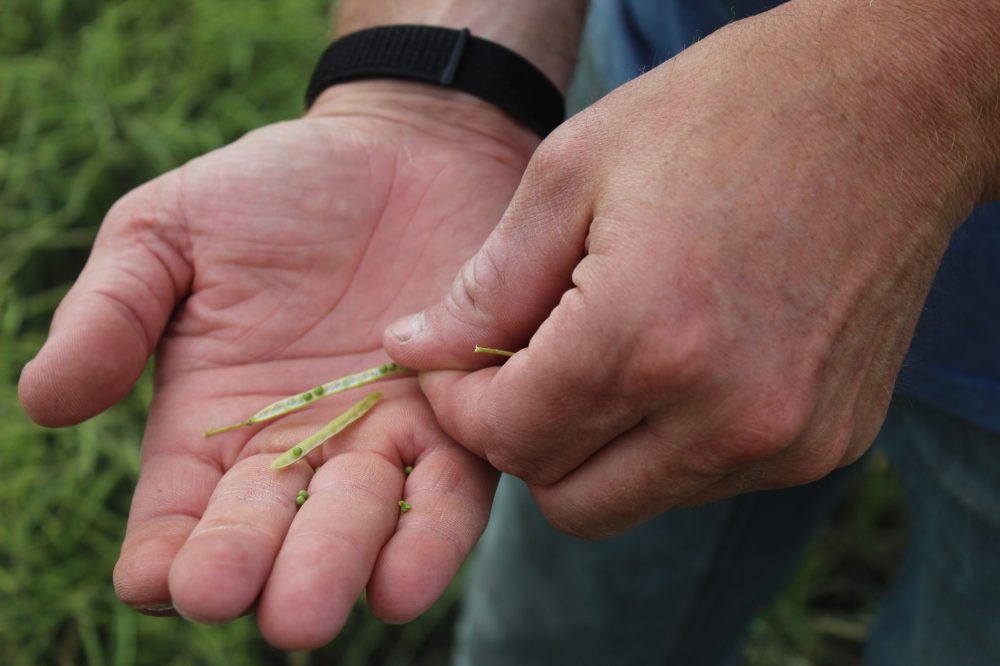Southeastern Manitoba canola farmers prepare for worst following Chinese tariffs
Advertisement
Southeastern Manitoba canola growers brace for an uncertain future, following the Chinese government’s tariffs on Canadian canola exports.
On Aug. 12, China levied a 75.8 percent anti-dumping duty, after the nation concluded its investigation launched in September 2024. Those duties came into effect on Aug. 14.
Jason Rempel owns a 2,000 acre farm just outside of Randolph. He’s growing 500 acres of canola this year, along with wheat, barley, corn and soybeans.

“It’s essentially locking a lot of canola out of China, and that has a huge hit on what we can earn at the farm gate for our canola sales,” he told The Carillon.
China is Canada’s second largest market for canola, with the exports worth $4.9 billion in 2024.
After seeing positive signs that he’d have a good harvest, Rempel secured contracts for some of his crop before the Chinese duties and was happy with the prices then. But now he’s seen the market “drop significantly” because of the levies.
“I could easily see it taking one farm’s situation from a positive on the balance sheet to a negative if they haven’t locked in any of those future contracts or just have the had a poor yield,” Rempel said.
He’s planning on selling on half of his crop by the end of the year and hold the rest to see how the market changes and recovers. But that doesn’t come without risk, as canola seed has a sensitive shelf-life, and any moisture in the storage hoppers can cause a crop to spoil, he noted.
“Sometimes farmers change their minds fives times before lunch, and that could be the case here too,” Rempel said.
If the levies remain in place long term, it may affect how many acres he would plant canola, and he may shift to other crops instead. Rempel believes the timing of the duties is intentional as harvest approaches and many farmers look to get good prices for their yields.
“There’s going to be a lot of politicians that get an earful from quite a few angry farmers. It’s no accident that they put the tariffs in place now,” he said.
The canola levies are the most recent retaliation in the trade war between China and Canada. Canada previously placed a 100 percent tariff on all Chinese-made electric vehicles and a 25 percent tariff on Chinese steel and aluminum exports.
The federal government has denied canola dumping claims made by China’s Ministry of Commerce. In a statement released the same day as China’s announcement, Minister of International Trade Maninder Sidhu and Minister of Agriculture and Agri-food Heath MacDonald called China’s move “very disappointing” and said Canada doesn’t dump canola.
“It’s just one more thing on top of all the normal things that we deal with as farmers,” said Warren Ellis, chair of the Manitoba Canola Growers Association.

He said if the tariffs continue, layoffs may follow. Just because the levies are on canola doesn’t prevent the impact spilling over into other industries, Ellis added. When there’s high levels of uncertainty in the market, farmers will look at what they can cut or where they can reduce future spending, he said.
Ellis sees manufacturers and equipment dealers as next to feel the potential fallout.
“They (farmers) aren’t going to go out and buy that auger or that type of thing. They’ll hold off and that’s going to affect everybody,” he said.
The best thing the federal government can do is reopen talks with China and try to negotiate the levies on Canadian canola, Ellis said.
The Manitoba Canola Growers Association with other agriculture and canola advocacy groups are working to gauge how much damage will be caused and the impact on the economy. Ellis said federal or provincial compensation is still “down the road quite a ways” because the impacts aren’t fully known yet.
Farmers all have plans for getting their crops to market and they shouldn’t panic despite the uncertainty, he noted.
“Sometimes opportunities come out of these types of things,” Ellis said.
